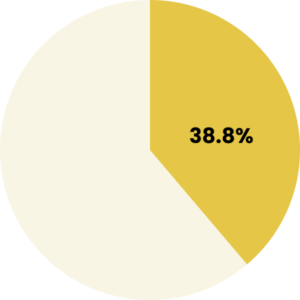
We can all agree that the job market is … quite frankly, an unfair battleground. Those with access to resources and quality education will always have options. For those who aren’t quite as fortunate, the ladder is steeper with fewer rungs.
In such a situation, entry-level jobs act as a great equalizer that helps people build their careers, but what is an entry-level job?
Defining ‘entry-level’
It’s easy to confuse ‘entry-level’ jobs with ‘internships’, but they are quite different. For example, an internship is temporary and usually lasts for a relatively short period of time (e.g., six months or one year). Entry-level jobs are, in face, usually part-time or full-time jobs where if you perform well, you’ll just keep functioning in that role.
As an entry-level employee, you’ll also still be able to avail all the benefits other employees receive, which usually don’t apply to interns, like health insurance.
Unfortunately, it’s hard to define “entry-level” as a concept because it varies across industries. The basic understanding is that entry-level jobs usually don’t require any experience or related educational qualifications, but depending on the field, it could also be a role that requires minimum relevant education and some experience.
Sadly, as the landscape changes, the requirements for even securing entry-level jobs have skyrocketed across industries. You’ll even find companies calling for 3-5 years of experience for an entry-level job, which honestly makes no sense!
But also, this is where internships come in handy. While you may still not be eligible for the ridiculously high expectations for some entry-level jobs, they WILL give you enough work experience for most others.
Who’s it for?
When you look at the corporate ladder, you’ll find entry-level jobs at the lowest levels (usually). This is because this is the role in which you would spend most of your time learning and developing skills for the career you WANT.
You will rarely—if ever at all—find seasoned professionals opting for entry-level jobs for this reason, UNLESS they’re looking to switch fields completely or, well … have fallen on hard times (and there’s no shame in that).
So, who’s it for?
Most entry-level jobs are taken by fresh graduates and interns who’ve just completed their internships as it acts as a great test bed for upskilling, improving on existing knowledge and acquiring new experiences.
Most companies actively choose to hire younger candidates for entry-level roles, and they search for those with some prior work experience. This experience can come in the form of internships or even volunteer work.
Now, this might make one think “So, if I did 10 internships, I’ll be the most hireable candidate on the list, right?” Wrong. Don’t make the mistake of spending all your time taking on more internships, especially when you’ve already got internship experience in a field you’re eyeing.
Don’t get us wrong, having a couple of internship experiences is great for your career, but you have to keep in mind that having tons of various internships under your belt will not make you more suitable for roles higher up in an organization.
Bypassing an entry-level job is rare for those without prior work experience and successfully substituting it with internships isn’t very common. In fact, many people manage to secure entry-level roles without internships if they have solid education qualifications and/or the skills a company is searching for.
What do you need to consider?
We spoke about how a growing number of entry-level jobs require extensive work experience earlier on. In fact, a LinkedIn analysis stated that “38.4% of entry-level job postings” required “at least three years of experience” in 2021, which is shocking.

Previously, this was more common across technical fields, such as those that fall under STEM. But now, it’s becoming common to see ardent demands of a few years’ experience, coupled with a degree in a relevant field just to even get considered.
But not everything is doom and gloom! LinkedIn also noted that the number of job postings that didn’t require a degree grew by almost 40% between 2019-2021. This follows on the heels of a growing trend in skills-based hiring across the globe.
So, what do you need to do?
You can start by understanding what you hope to achieve with an entry-level job. Is it the experience you are after? Do you want to network within the industry?
Perhaps you want to boost your skills or just ensure job security to pay the bills. Depending on your main priorities, your outlook on different entry-level positions could change.
So, list out your priorities and order them accordingly. Then, when you search up entry-level job postings, you’ll be able to sort them and eliminate those that would be most likely to waste your time.
The more in line with your priorities a job posting is, the better the option.
If you aren’t sure about how to organize your priorities, consider the following:
It’s all about the connections!
If you’re looking to advance fast, you’re probably eyeing making as many useful connections as possible. Who you meet through where you work (or what you work on) plays a huge role in this. Networking could take you to the big leagues swiftly (if done right).
Playing the long game?
If you’re more of the patient type, then this should be a priority for you. An entry-level job is a stepping stone to a successful career. Utilize it. Unlike internships, which last for short periods of time (it could be weeks or months), an entry-level job lends the most impact if you spend at least a whole year functioning in your role.
Use this time to expand your knowledge on the field and work your way through as many in-job opportunities as possible to bolster your resume. You can use this to back up any question regarding your compatibility with a role at your next interview. “Can you handle this job?” Yes, you can!
If you ain’t upskilling, you’re wasting your time!
Ah, you’re all about the skills, I see! Then you should view an entry-level job as an upskilling opportunity. What skills are you hoping to gain? Evaluating job postings with your personal upskilling agenda will take some time and some research, but if you’re willing to put in the effort, it will prove quite beneficial for you.
Do you want to obtain or improve hard, technical skills like Photoshop? Or are you focused on transferable skills, like communication or data analysis? Whichever it is, take time to understand what a role can offer you and choose wisely.
Once you’ve landed an entry-level job, then you aren’t typically expected to jump high and low and perform astonishing feats from the get-go. This is the time for you to undergo on-the-job training and prepare yourself for your future career trajectory.
Final thoughts
Finally, here is the most important step: applying for an entry-level position. Now, no matter what a job posting says, you should apply for jobs even when you don’t meet ALL the minimum requirements. A good figure to keep in mind is 70%. If you tick 70% of the requirements, GO FOR IT.
You know how your Amazon wishlist has a ton of stuff you wish you had but you can only afford to buy maybe one or two of them? A job posting is a bit like that.
A company wants 101 things from a pool of fresh-faced potential employees, but in most cases, it’s not feasible. They’re just casting a wide net to see if they could get somebody who DOES tick multiple boxes at least.
Usually, you’ll get shortlisted, and then, you’ll have your chance to sway their minds with a little interview magic, like the STAR Method.
Check out our website for more resources to help you take your career to new heights (or to the world)!







